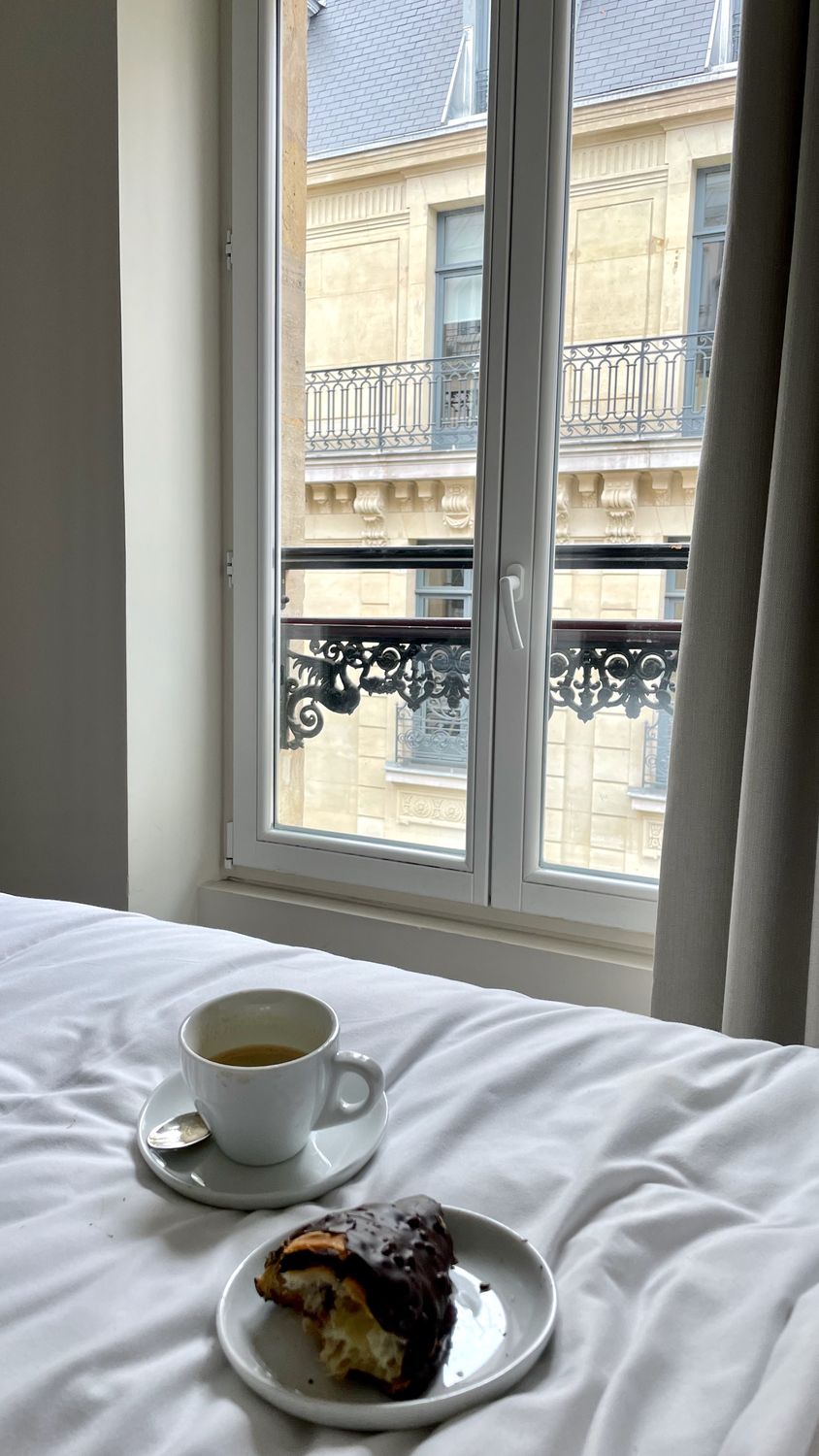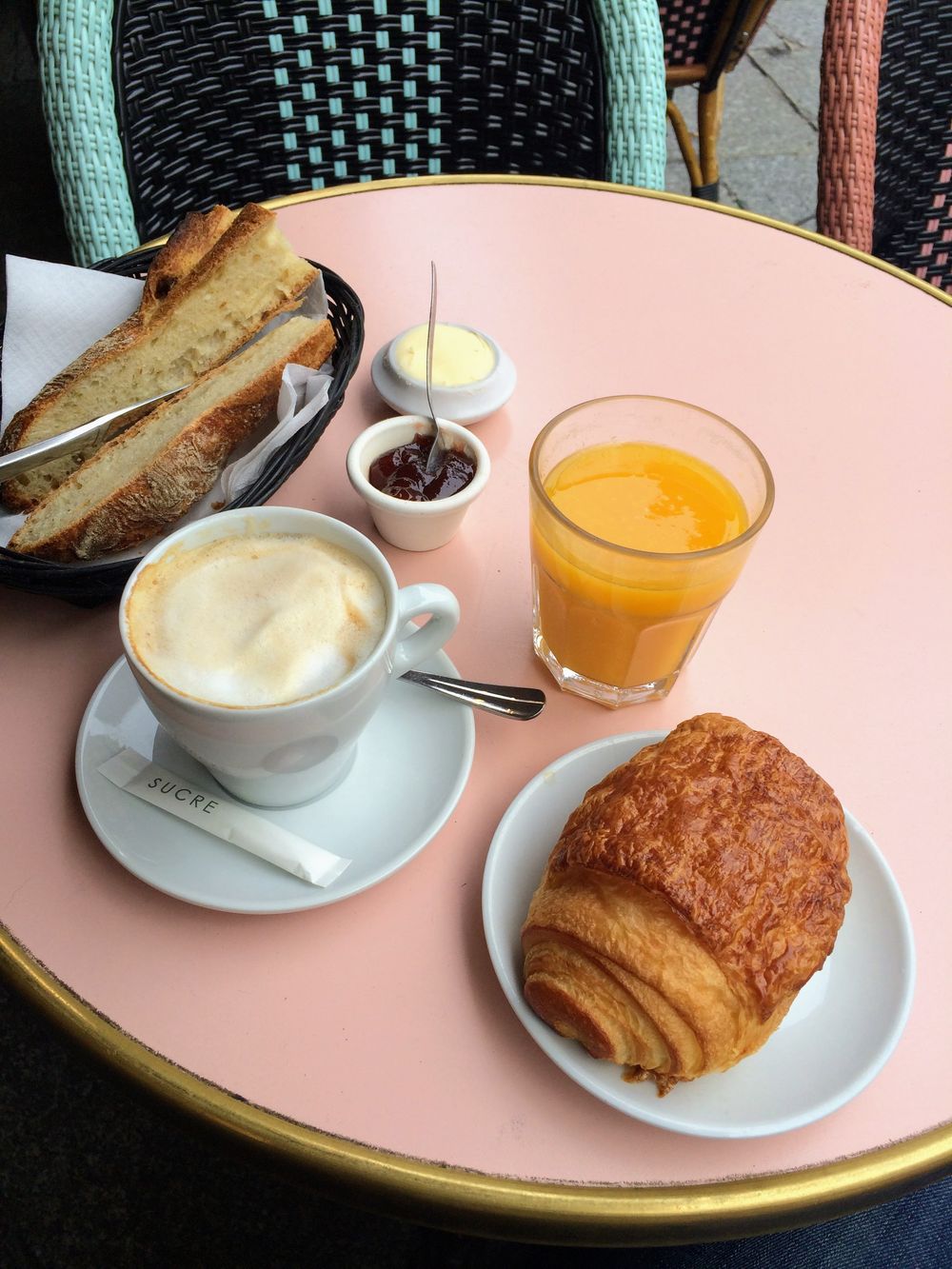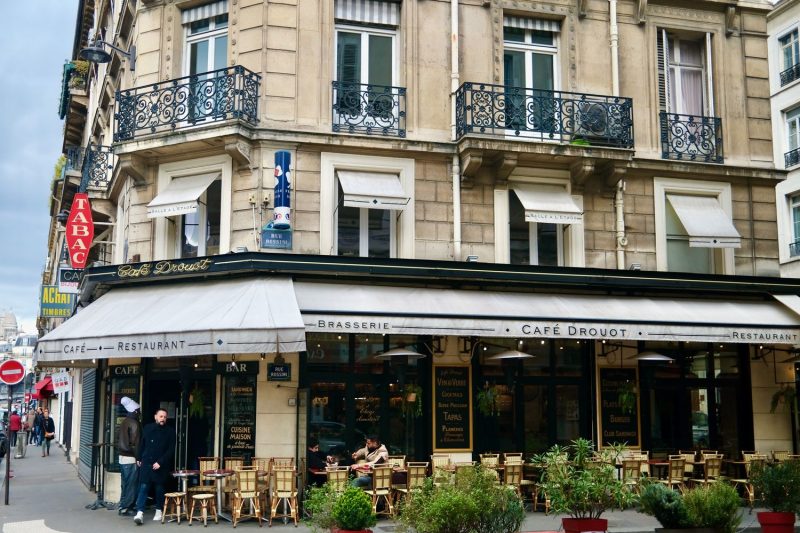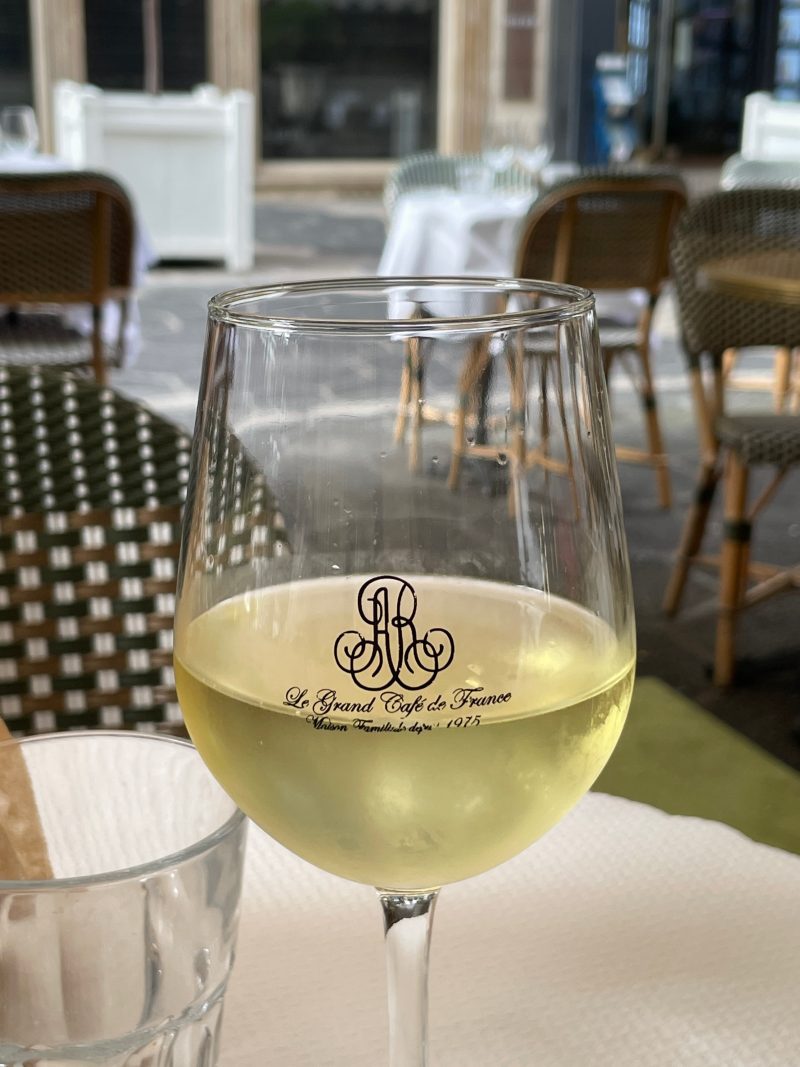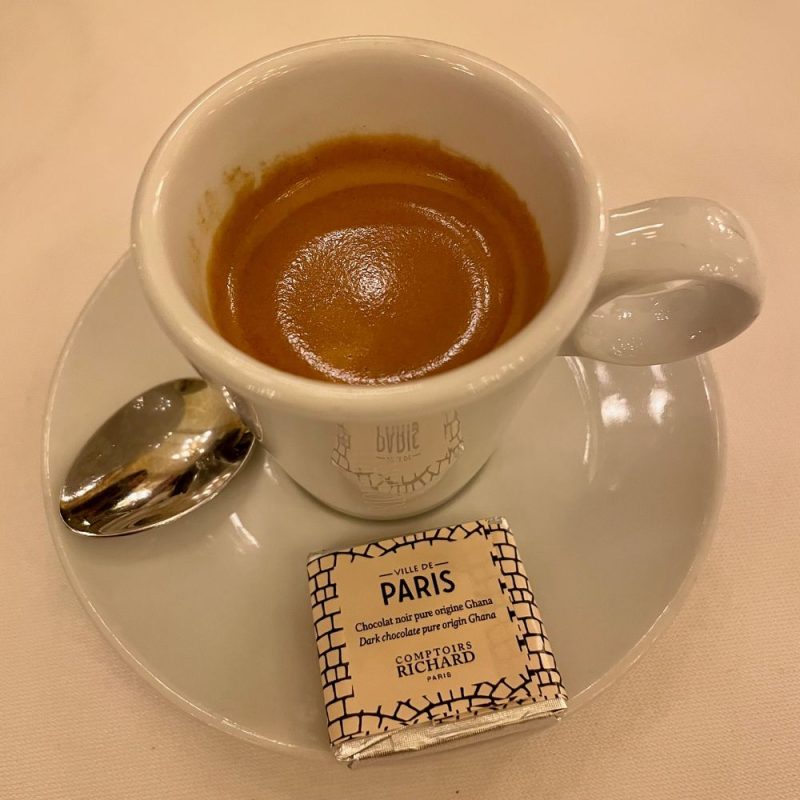Typical French Breakfast Meals and Foods to Try
Culture Travel may earn a commission through links on this website. As an Amazon Associate, we earn from qualifying purchases.
The French have a refined and leisurely approach to food, even when it comes to starting the day. The typical French breakfast, or petit déjeuner, is a far cry from the huge plates of eggs, pancakes, and bacon that are so popular in American breakfasts. In France, breakfast is a lighter meal focused on bread, pastries, and coffee. But despite its modest nature, a French breakfast is no less lovingly prepared and appreciated.
This morning I’ll take you through the components of a classic French breakfast spread. We’ll explore the flaky croissants and crusty baguettes baked fresh each morning, along with sweet jams, nut butters, and marmalades. I’ll describe the typical French coffee drinks like café au lait and explain how the French turn something as simple as toast and butter into a delicate breakfast ritual.
To add local flavor, I’ll share some regional French breakfast specialties too. From Provence to Alsace, breakfasts around France reflect the diversity of the country. So pour yourself a café creme and join me on a voyage through the delights of le petit déjeuner français. It’s a sensory experience that will have you wanting to linger for hours over breakfast like the French do.
Typical Breakfast in France
In France, a typical breakfast, often referred to as “le petit déjeuner”, is usually a simple and light meal. It frequently consists of freshly baked bread, such as a baguette or croissant, which might be accompanied by some butter and jam or honey. Beverages served are often hot drinks like coffee, hot chocolate, or tea. Additionally, French people might enjoy a glass of freshly squeezed orange juice. This breakfast style allows the French to save room for larger meals at lunch and dinner.
French Breakfast Foods
French breakfasts embody the essence of simplicity and quality. Unlike the heavy and varied breakfasts found in other cultures, French breakfasts usually consist of light fares that provide a gentle start to the day. Freshly baked goods, fruit or honey spreads, and hot beverages form the cornerstone of a typical morning meal. The emphasis is often on fresh, high-quality ingredients that offer a balance of flavors and textures to kickstart the day in a wholesome manner.
Viennoiseries
When indulging in a classic French breakfast, one cannot overlook the significance of viennoiseries. These are baked goods made from a yeast-leavened dough, similar to bread, but with added ingredients like eggs, butter, milk, cream, and sugar, giving them a richer and sweeter character.
Some popular breakfast items in the viennoiserie category include croissants, pain au chocolat, pain aux raisins, and brioche. These pastries are often enjoyed warm, freshly baked from the local bakery, offering a delightful beginning to the morning with their flaky textures and subtle sweetness.
Baguettes and Tartine
A quintessential element in French breakfasts is the presence of freshly baked baguettes. A baguette, characterized by its long, thin shape and crispy crust, forms the basis of “tartine”, a popular French breakfast item. Tartine is essentially a slice of baguette topped with a layer of butter, jam, or honey. This simple yet satisfying breakfast item emphasizes the freshness of the bread and the quality of the accompanying spreads, promising a burst of flavor in every bite.
Eggs
While not a staple in a traditional French breakfast, eggs can sometimes make an appearance, especially during a leisurely weekend breakfast or brunch. In such cases, eggs are usually prepared in a simple manner, either as soft-boiled, poached, or scrambled. They might be served alongside some crusty bread or a salad, offering a protein-rich addition to the breakfast spread. The incorporation of eggs adds a versatile dimension to the French breakfast, making it a little more nourishing.
French Breakfast Beverages
No French breakfast is complete without the inclusion of classic beverages to complement the meal. Traditionally, hot beverages like coffee, tea, or hot chocolate hold a prominent place in the breakfast ritual. French coffee is usually enjoyed as a single espresso, un café, or un café au lait, which is a blend of coffee and hot milk. A glass of fresh orange juice can bring a refreshing and tangy note to the breakfast, ensuring balanced hydration.
What time is breakfast served in France?
In France, breakfast is usually served early in the morning, typically between 7:00 AM and 9:00 AM. This allows people to have a nourishing start before proceeding with their day, whether it be heading to work or school.
During weekends or holidays, French people could enjoy a slightly later and leisurely breakfast, extending into a brunch period around 10:00 AM to 11:00 AM. It is customary to enjoy breakfast as a private meal, often shared with family members at home, but cafés and bakeries are also popular spots for enjoying a relaxed morning meal.
Breakfast at French Cafés
In many French cafes, you’ll find a few different “formules” or set meal options for breakfast. These “formules” are combinations of popular breakfast items bundled together at a fixed price, offering a balanced and satisfying meal to start the day.
Here are some common components and combinations you might encounter:
- Le Petit Déjeuner Classique: This is often a classic formula comprising a hot beverage (coffee, tea, or hot chocolate), paired with a choice of fresh bread, croissants, or other viennoiseries, accompanied by butter and jam.
- Le Petit Déjeuner Complet: A more complete option might include everything in the classic formula, along with additional items like a serving of fresh fruit or fruit salad, and perhaps a portion of yogurt or a piece of cheese, adding a bit more substance to the meal.
- Formule Express: For those in a hurry, some cafes offer an “express” option, which usually includes a hot beverage paired with a single pastry or baguette slices, providing a quick and easy option for breakfast on the go.
- Formule Week-end or Brunch: On weekends, you might find special brunch formulas that include a more extensive selection of items, potentially including eggs prepared to your liking, a wider variety of pastries and bread, and perhaps fresh juice or a small salad.
These formulas aim to offer convenience and value, allowing patrons to enjoy a balanced French breakfast with ease. It’s also common to find cafes that allow customization of these formulas to cater to individual preferences and dietary requirements.
French Breakfast vs English Breakfast
When comparing French and English breakfasts, one would notice substantial differences in both the composition and the nature of the meals.
A French breakfast, as noted, is usually light and simple, primarily focused on high-quality baked goods like baguettes, croissants, and pastries, accompanied by hot beverages such as coffee or hot chocolate. The emphasis in a French breakfast is often on enjoying fresh, sweet, and light fare.
On the other hand, a traditional English breakfast, also known as a “Full English” or “Fry-up”, is considerably more hearty and substantial. It typically includes cooked foods such as eggs, bacon, sausages, grilled tomatoes, fried mushrooms, baked beans, and toast or fried bread. Additionally, it may include some puddings and a hot beverage, usually tea, to accompany the meal. This kind of breakfast is rich and filling, offering a robust breakfast with a combination of proteins, fats, and carbohydrates.
While the French breakfast emphasizes freshness and simplicity, focusing on the quality of individual ingredients, the English breakfast is a more fulfilling and substantial meal with components offering different flavors and textures, resulting in a more satiating morning meal experience.
